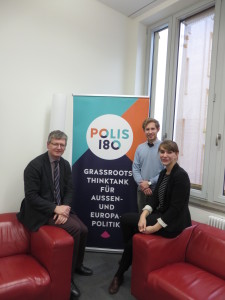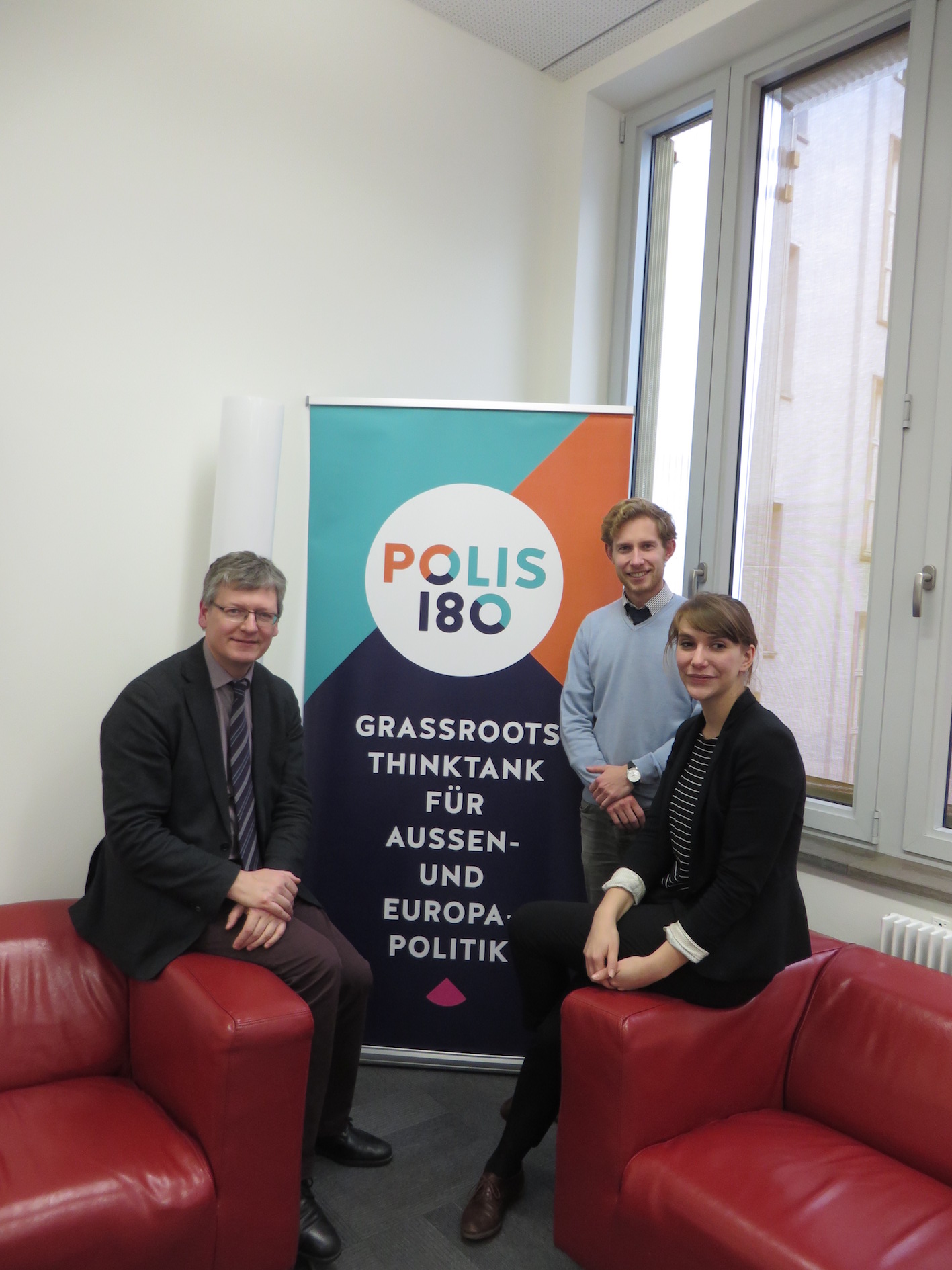POLIS TALK MIT LASZLO ANDOR

Together with Laszlo Andor, former EU Commissioner for Employment, Social Security and Inclusion, a small group of Polis members discussed David Cameron’s latest propositions on labour migration and the related question of the so-called “Brexit”.
Heated discussions about welfare benefits for immigrants are not entirely new in the United Kingdom. With Cameron’s announcement of a referendum in 2017 and the consequent scenario of the so-called Brexit, however, the debate reaches a whole new level: a European one.
David Cameron’s latest proposition in this context – to restrict social welfare entitlements of EU-migrants for four years – would restrict freedom of movement, one of the fundamental freedoms of the European common market. As this would discriminate against other EU citizens it is questionable in how far would be politically feasible, besides the question whether this is economically really desirable: many researchers argue that immigration has many positive impacts on the economy and ‘pays off’. Yet, the question of economic costs and benefits of immigration are also increasingly debated in other European states and fueled by the current refugee crisis.
What has the EU Commission done so far to foster freedom of movement and how will the EU and its Member States react vis-à-vis Cameron’s demands?
Together with Laszlo Andor, former EU Commissioner for Employment, Social Security and Inclusion and currently Senior Fellow at the Hertie School of Governance, a small group of Polis members discussed David Cameron’s latest propositions on labour migration and the related question of the so-called “Brexit”.
Are the UK’s demand compatible with the treaties? Why has empirical evidence on labour migration only limited impact on the debate? To which extent is the debate in the UK different from similar ones in Germany or France? Besides answering these and other questions, László Andor emphasized the EU’s current and future efforts in the field of enhancing labour migration.
